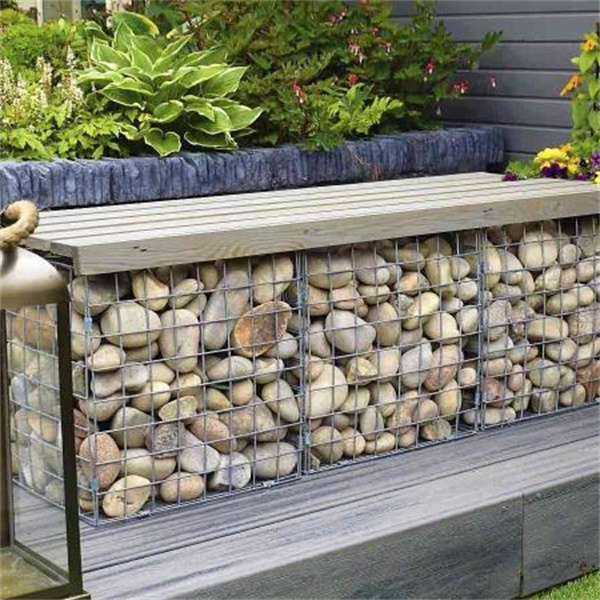Nov . 28, 2024 02:26 Back to list
Quality Gabion Solutions for Architectural and Landscaping Projects
The Rise of Architectural Gabion Suppliers A Sustainable Solution for Modern Design
In recent years, the architectural landscape has seen a shift towards sustainability and eco-friendly building practices. One innovative solution that has gained popularity in this arena is the use of gabions. Gabions, which are wire mesh containers filled with rocks, dirt, or other materials, offer a versatile and aesthetically pleasing option for various applications, from landscaping to structural support. As the demand for gabion solutions increases, so too does the need for reliable architectural gabion suppliers who are equipped to meet the diverse requirements of modern design.
Understanding Gabions
Gabions have been used for centuries, originally serving as practical solutions for erosion control and military fortifications. However, in contemporary architecture, they have evolved into multifunctional elements that blend utility with visual appeal. Architects and designers appreciate gabions for their durability, flexibility in design, and ability to integrate into various environments.
These structures can serve multiple purposes, including retaining walls, noise barriers, and decorative facades. The porous nature of gabions also allows for natural drainage, which is advantageous in landscaping projects. Moreover, the stones used in gabions can often be locally sourced, reinforcing the sustainable ethos at the heart of modern architectural practices.
The Role of Gabion Suppliers
Architectural gabion suppliers play a crucial role in the successful implementation of gabion systems. They provide not just the materials, but also the knowledge needed to design and build effective gabion structures. Choosing the right supplier can significantly influence the overall success of a project. An ideal supplier should offer a range of options, including different mesh sizes, materials for filling, and customization based on the project’s specific needs.
Benefits of Choosing Gabion Structures
1. Environmental Benefits Gabions are environmentally friendly as they encourage vegetation growth, promote biodiversity, and minimize the impact of erosion. They can also be filled with recycled materials, further enhancing their sustainability credentials.
2. Aesthetic Versatility Gabions can be crafted in various shapes and sizes, making them adaptable to different architectural styles. Designers can use gabions in creative ways, such as creating artistic sculptures or integrating them into outdoor seating.
architectural gabion supplier

3. Cost-Effectiveness The installation of gabions can be more cost-effective compared to traditional materials, especially when considering long-term maintenance. Their durability reduces the frequency of repairs, offering long-lasting value.
4. Ease of Installation Gabion structures are relatively easy to install. They do not require extensive site preparation, which can save time and labor costs during construction. This simplicity is particularly advantageous for large-scale projects.
Selecting the Right Supplier
When selecting an architectural gabion supplier, there are several factors to consider
- Experience and Expertise Look for suppliers who have a proven track record in providing gabion systems for various projects. Experienced suppliers can offer valuable insights and recommendations tailored to specific design needs.
- Quality of Materials The durability of gabion structures hinges on the quality of materials used. Trusted suppliers source high-quality wire mesh and stone fillings that can withstand environmental stresses.
- Customization Options Each project is unique, and a good supplier should offer a degree of customization to accommodate specific aesthetic and functional requirements.
- Support Services Reliable suppliers offer additional services, such as design consultations, installation guidance, and post-installation support to ensure the project's success.
Conclusion
The growing popularity of gabions in architectural design reflects a broader trend towards sustainability and innovative building practices. As the demand for these versatile structures rises, the role of architectural gabion suppliers becomes increasingly significant. By providing high-quality materials, expert guidance, and customized solutions, these suppliers help architects and designers create functional, aesthetically pleasing, and environmentally friendly spaces. As architectural trends continue to evolve, embracing the potential of gabions may very well pave the way for a more sustainable future in construction.
-
Visualizing Gabion 3D Integration in Urban Landscapes with Rendering
NewsJul.23,2025
-
The Design and Sustainability of Gabion Wire Mesh Panels
NewsJul.23,2025
-
The Acoustic Performance of Gabion Sound Barriers in Urban Environments
NewsJul.23,2025
-
Mastering the Installation of Galvanized Gabion Structures
NewsJul.23,2025
-
Gabion Boxes: Pioneering Sustainable Infrastructure Across the Globe
NewsJul.23,2025
-
Custom PVC Coated Gabion Boxes for Aesthetic Excellence
NewsJul.23,2025
-
Installation Tips for Gabion Wire Baskets in Erosion Control Projects
NewsJul.21,2025






